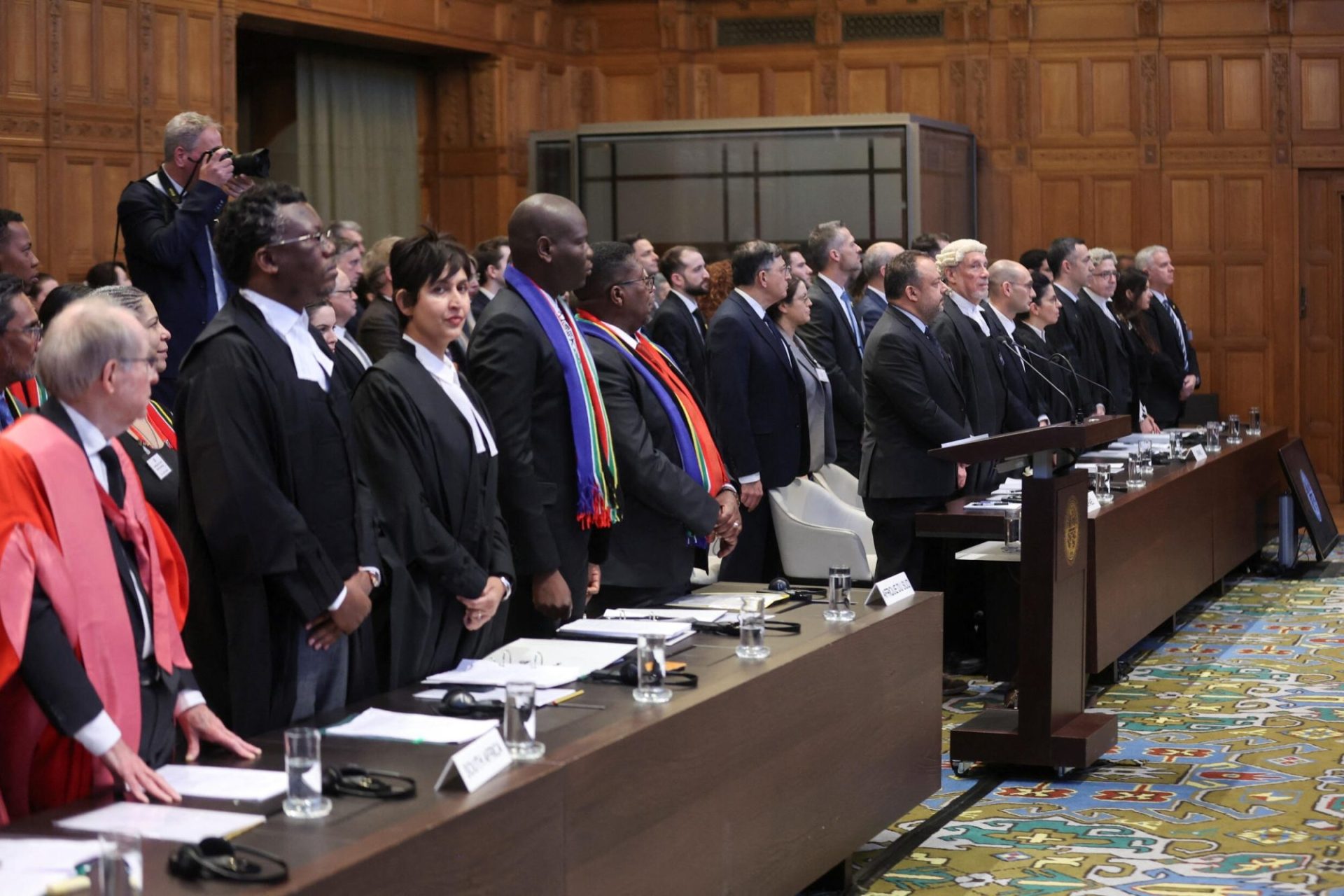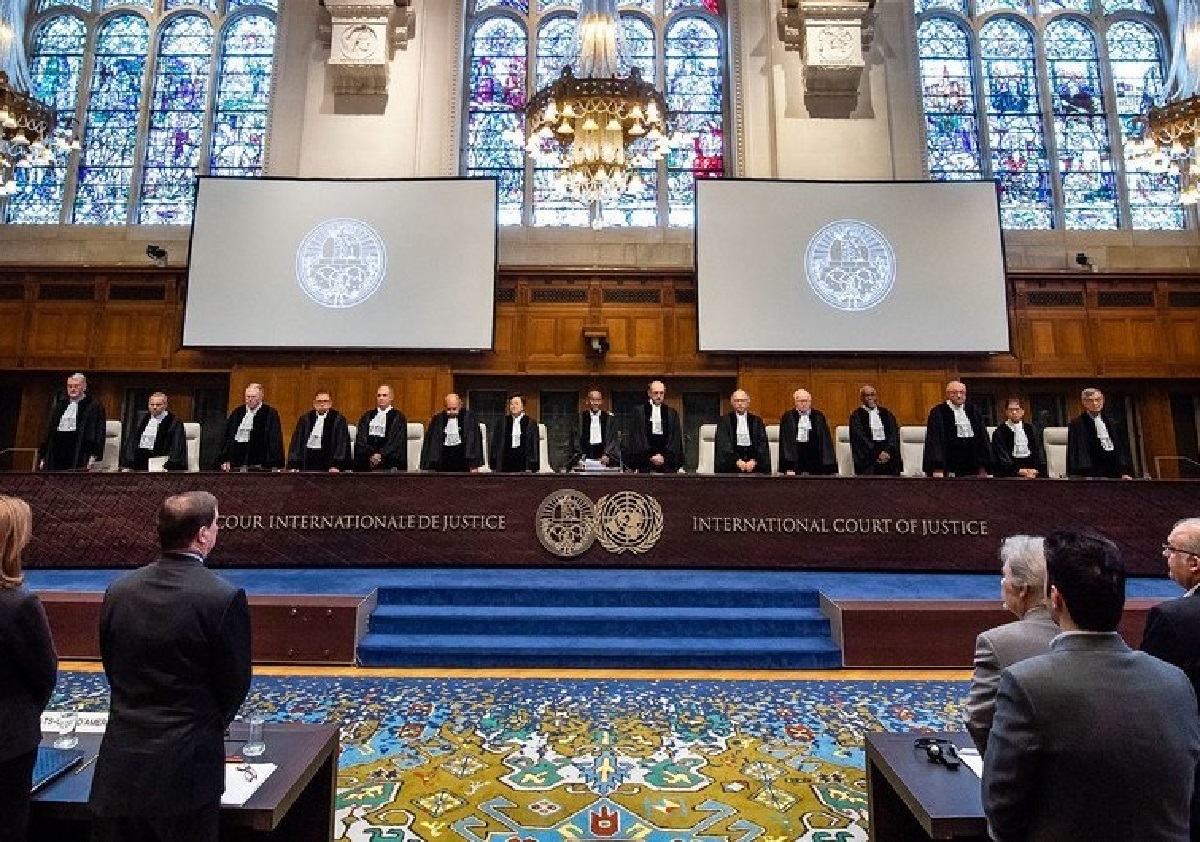After the International Court: Unraveling the Impact of the Gaza War Verdict

Watan-The curtain has fallen on the two-day public hearing session in the International Court of Justice for the case of South Africa against Israel. In this case, the Israeli military is accused of committing genocide crimes in the Gaza Strip.
According to a report from the Middle East Eye, “While Israel vehemently denies South Africa’s accusations of violating the United Nations Convention on the Prevention of Genocide in its fierce war in Gaza, questions still linger about what will happen next.”
Palestinians and their supporters worldwide hope that the International Court of Justice, often referred to as the “World Court,” can halt destructive Israeli activities in Gaza. This marks the first time Israel is being tried under the United Nations Genocide Convention, established after World War II in response to atrocities committed against Jews and other oppressed minorities during the Holocaust.
After the hearing sessions in The Hague, the court will decide whether the charges brought by South Africa against Israel fall under the umbrella of the Genocide Convention or not. This treaty was the first human rights treaty adopted by the United Nations in 1948.
A temporary ruling in favor or against South Africa’s urgent request is expected to be issued within weeks. This is an interim measure that can be implemented before the start of the main case.
On the first day of the public hearing session, South Africa requested the International Court of Justice to issue a decision on a temporary measure “for the immediate suspension of Israeli military operations in Gaza and against it.” The African state argued that these measures are necessary to protect against further serious and irreparable harm to the rights of the Palestinian people under the Genocide Convention, which continues to be violated with impunity.
Are interim measures enforceable?
Despite the International Court of Justice ultimately deciding on a temporary order, Israel can ignore it.
Israel’s trial in the International Court of Justice forced by South Africa marks the first in its history on charges of genocide. Temporary judgments issued by the International Court of Justice are theoretically binding, but they are usually not enforceable, as the court lacks enforcement authority.
However, they can cause significant damage to reputation.
Recent examples of ignored interim measures include the International Court of Justice’s 2022 ruling ordering Russia to “immediately suspend military operations started on February 24, 2022, in Ukrainian territories.”
In theory, the International Court of Justice can quickly rule in favor of South Africa and order an immediate halt to the Israeli military campaign in Gaza, but without significant real-world changes.
Nevertheless, if the interim measure is supported, it could mean temporary protection for Palestinians from actions that could ultimately be deemed as genocide.

When will the final judgment be issued?
Negotiations in the International Court of Justice involve lengthy and detailed written submissions, typically followed by arguments and counter-arguments from legal representatives of each country. The judges will then decide on the final judgment.
Estimates suggest that the case between South Africa and the International Court of Justice may last up to four years.
It is worth noting that in 2019, a previous case brought by the International Court of Justice on behalf of Gambia, with the support of the Organization of Islamic Cooperation, against Myanmar, accusing it of committing genocide against the Rohingya ethnic population in the Rakhine state of northern Myanmar, continued. In 2022, the judges voted with a majority of 15 in favor and one against, affirming Gambia’s right to bring the case under the Genocide Convention of 1948.
A year before that, the International Court of Justice rejected interim measures against Myanmar, urging the military council to halt the genocide against the Rohingya. However, no final judgment has been issued.
Many experts believe that this previous case paved the way for South Africa to pursue legal action against Israel.
When will the final judgment be issued?
Negotiations in the International Court of Justice involve lengthy and detailed written submissions, typically followed by arguments and counter-arguments from legal representatives of each country. The judges will then decide on the final judgment.
Estimates suggest that the case between South Africa and the International Court of Justice may last up to four years.
It is worth noting that in 2019, a previous case brought by the International Court of Justice on behalf of Gambia, with the support of the Organization of Islamic Cooperation, against Myanmar, accusing it of committing genocide against the Rohingya ethnic population in the Rakhine state of northern Myanmar, continued. In 2022, the judges voted with a majority of 15 in favor and one against, affirming Gambia’s right to bring the case under the Genocide Convention of 1948.
A year before that, the International Court of Justice rejected interim measures against Myanmar, urging the military council to halt the genocide against the Rohingya. However, no final judgment has been issued.
Many experts believe that this previous case paved the way for South Africa to pursue legal action against Israel.






